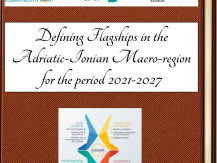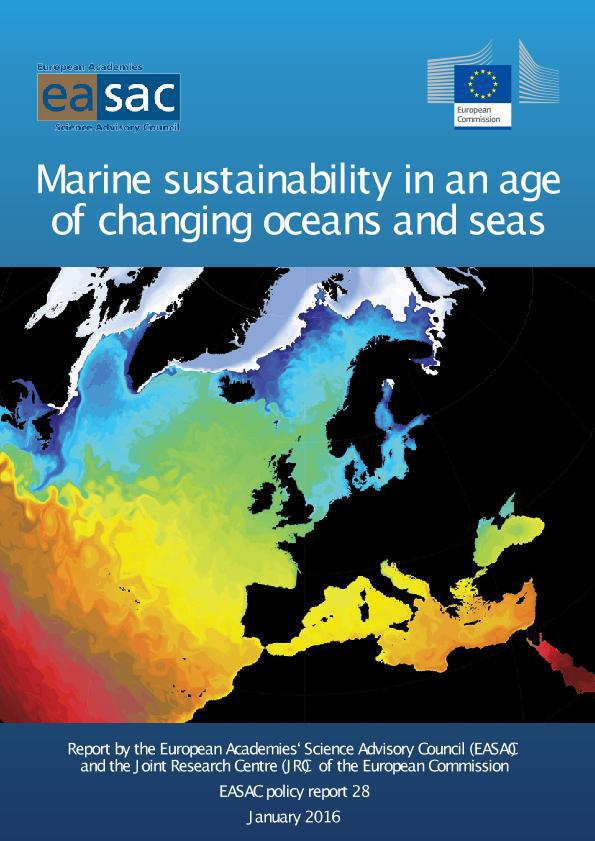Marine sustainability in an age of changing oceans and seas
As we notice an increasing focus on coherent marine and maritime policy and governance within the EU, the ecosystem approach, we are sharing a very valuable report for today's discussion at the Meeting of EU Strategy for Adriatic-Ionian Region smart specialization representatives – Blue Growth.
Today's Meeting of EU Strategy for Adriatic-Ionian Region smart specialization representatives – Blue Growth is organised within the Mediterranean Coast and Macro-regional Strategies Week 2020.
A short abstract of the report:
The report is the result of fruitful collaboration between EASAC and the JRC. It has been prepared by a working group of experts drawn from the European National Science Academies, which was supported by the JRC. It is hoped that the report will prove useful in the further development and implementation of European Union marine and maritime policy as well as the organisation of supporting science needed to inform and guide these policies. The last ten years have seen a growth in marine and maritime policymaking within the European Union with a key feature being the concept of the ecosystem approach to guide sustainable use of the seas. In view of this increasing focus on coherent marine and maritime policy and governance within the EU, as well as globally, the EASAC Council decided in December 2013 to conduct a study on the issue of marine sustainability. This decision particularly acknowledged the need to provide advice from the point of view of the European science academies on this new direction of marine policy and to highlight the particular challenges that this poses to the organisation of science. The report has the aim of contributing to the governance challenge of how to integrate the various aspects of marine policy (fisheries management, biodiversity conservation and marine environmental protection) as part of a coherent ecosystem approach. It considers how current science knowledge on marine ecosystems and the organisation of science can support an integrated approach to management of the seas. The report looks at a number of key aspects for sustainable development in changing oceans and seas, and particularly highlights the key scientific challenges in addressing these issues. The report presents both recommendations from science for policy development, and recommendations on policy for science. The health of the oceans and coastal seas is vital for the future well-being of all of Europe, indeed of entire mankind, and sustainable management of this sensitive and fast changing component of the global ecosystem is essential.
You might be interested in

EUSAIR flagships all summed up!

3rd EUSAIR Annual Forum – CATANIA DECLARATION

The Hellenic Republic assumes the Presidency of the EU Strategy for the Adriatic and Ionian Region (EUSAIR) (1 June 2024 – 31 May 2025)









